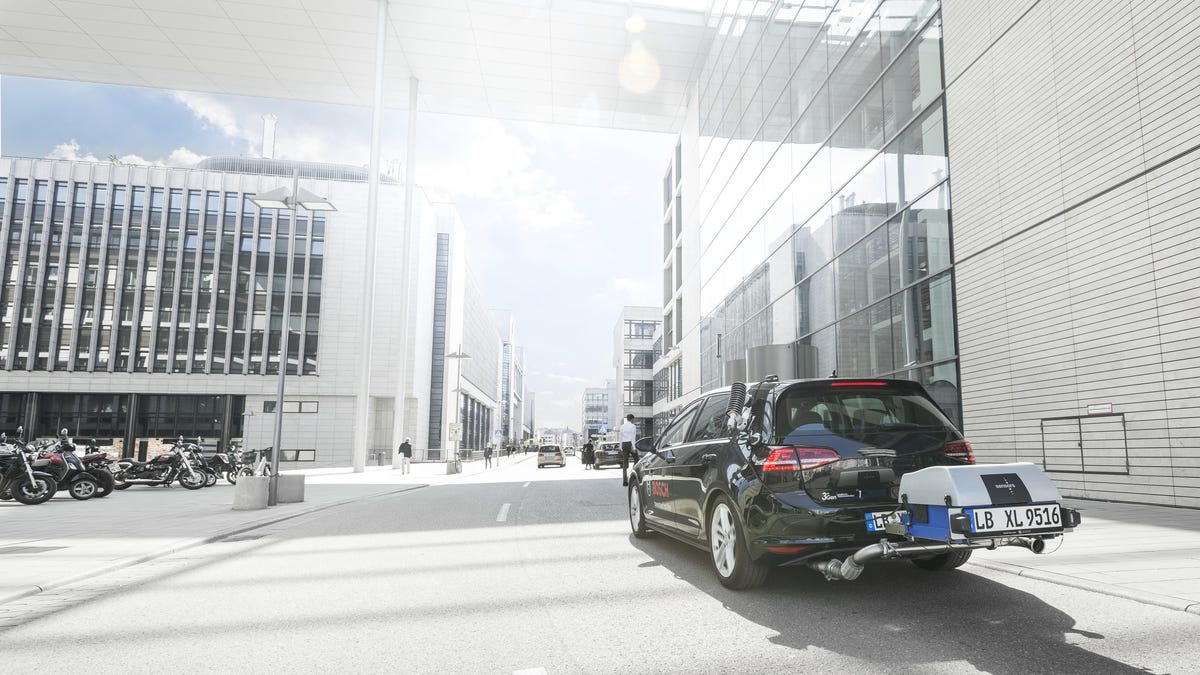Bosch says it can fix diesel if you'll just give it one more chance, baby
The German technology supplier believes it has nailed the problem of diesel emissions using artificial intelligence.

Robert Bosch GmbH, a company that was believed to be instrumental in the proliferation of diesel emissions cheating that swept the automotive industry now says it has the solution to diesel emissions.
According to a press release from Bosch, it has developed technology that will allow it to reduce nitrogen emission levels to just one-tenth of the European legal limits set to go into place in 2020 and that it can do it without expensive additional equipment.
No, these Germans aren't going to a tailgate party, they're testing for nitrogen emissions!
If this all sounds a little hinky to you, then you're not alone. But, if what Bosch is saying is true, it could mean that there is a future for diesel in places with strict emissions requirements like the USA and Europe which is in the midst banning diesel vehicles from some of its largest city centers.
"There's a future for diesel. Today, we want to put a stop, once and for all, to the debate about the demise of diesel technology," said Bosch CEO Volkmar Denner. "Bosch is pushing the boundaries of what is technically feasible. Equipped with the latest Bosch technology, diesel vehicles will be classed as low-emission vehicles and yet remain affordable."
Bosch's new diesel technology relies on artificial intelligence to actively control engine temperatures, something which is critical for nitrogen emission reduction. Bosch also says it has created a new means of recirculating exhaust gases.
The German industrial giant is also calling for additional transparency in fuel economy and emissions testing, urging politicians to measure both on real roads, rather than in lab environments, something which would hopefully make gaming the tests less feasible for manufacturers.

